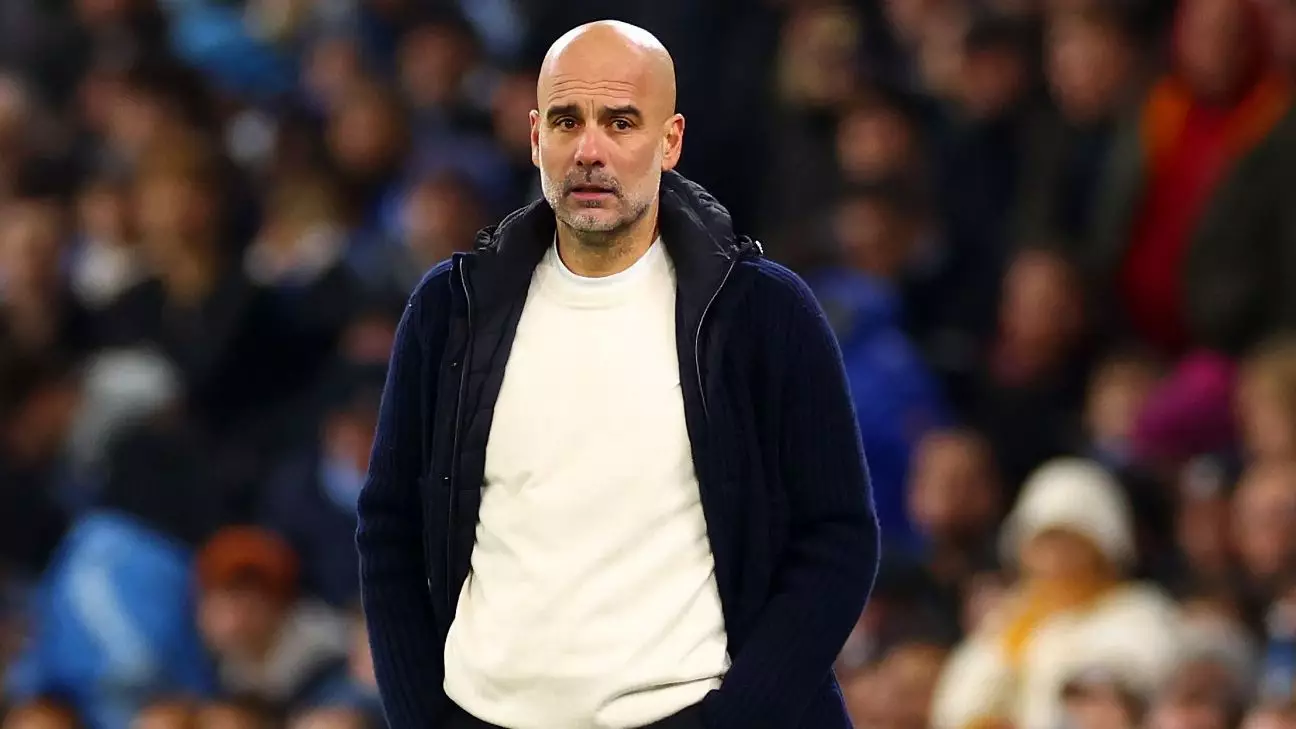In the world of football, transfer windows often serve as a barometer for a club’s ambitions and fears. The recent January transfer activity by Manchester City has sparked significant conversation regarding their intentions and underlying concerns. Pep Guardiola, the club’s manager, staunchly refuted the idea that the club’s robust spending—amounting to approximately £175 million—was driven by fears of a looming transfer embargo. Instead, Guardiola pointed to injury crises as the primary motivator behind this marked deviation from their historically restrained winter transfer strategies.
Historically, Manchester City has approached the January transfer window with caution, having last engaged in a major mid-season signing in 2018 with the acquisition of Aymeric Laporte. This year, however, they expanded their roster by bringing in players such as Omar Marmoush, Abdukodir Khusanov, Vitor Reis, and Nico Gonzalez— athletes who not only possess promising talent but also fill gaps left by injuries in the squad. Guardiola emphasized the need for reinforcements due to a series of injury setbacks that have hindered the team’s performance during the first half of the season.
However, the unprecedented level of spending raises an eyebrow in the shadow of ongoing speculation about the club’s financial practices. As they face 115 charges alleging breaches of Premier League financial regulations, many observers have questioned whether this lavish expenditure is a strategic countermeasure to prepare for any potential sanctions. Punishments for such infractions could encompass severe penalties, including hefty fines or even a points deduction that could jeopardize the club’s standing in domestic competitions.
Guardiola has taken this opportunity to address speculation regarding the club’s financial health and its implications on transfer activities. Despite the significant sums spent in January, he insisted that the club’s net spend over the years paints a different picture. Highlighting that they rank last in net spending among the top six Premier League teams over the past five years, Guardiola argued that the perception of Manchester City as merely a financial powerhouse does not hold up under scrutiny. His comments reflect a deep-seated frustration with the narrative that invariably ties success to wealthy benefactors and limitless spending.
While the Premier League’s financial investigation looms large over City, Guardiola believes the verdict will arrive soon. He asserted that the club has always operated within its means and has achieved success despite the substantial investments made by rivals like Chelsea and Manchester United. This dichotomy raises intriguing questions about how the narrative around financial power shapes perceptions of club success.
Injuries and Squad Management
Another heartening aspect of Guardiola’s comments pertained to player injuries, specifically that of key midfielder Rodri, who has been sidelined since September with a knee injury. Guardiola clarified that he does not foresee Rodri’s return until next season. While this announcement may seem discouraging, it underscores the necessity for the new acquisitions to step up and fulfill the critical roles left empty by injured players. The coach’s strategy appears to hinge on sustaining competitiveness in crucial tournaments like the Champions League—an arena where depth of talent becomes paramount.
It’s clear that Guardiola’s approach regarding squad management is multifaceted, requiring a balance between building towards the future and addressing immediate squad deficiencies. This careful navigation of player availability against a backdrop of potential sanctions indicates a club at a crossroads, striving to assert itself both on the pitch and in the boardroom.
Manchester City stands at a pivotal moment in its history, balancing ambitious recruitment efforts with the looming threat of financial penalties. Guardiola’s unwavering defense against speculation about their spending habits reinforces the narrative of a club striving to withstand external pressures while focusing on its immediate needs. The decisions made during the January transfer window may indeed redefine the club’s direction, not only in pursuit of silverware but also amidst growing scrutiny. Navigating through these challenges adeptly will be key for City’s future, as they seek to retain their competitive edge against a backdrop of uncertainty.

